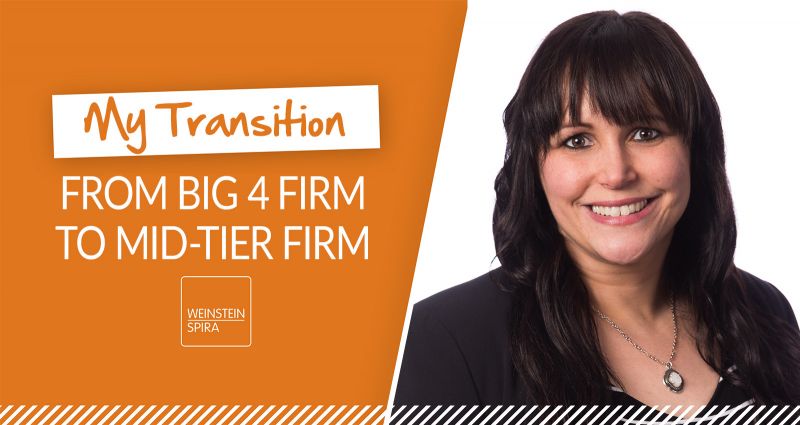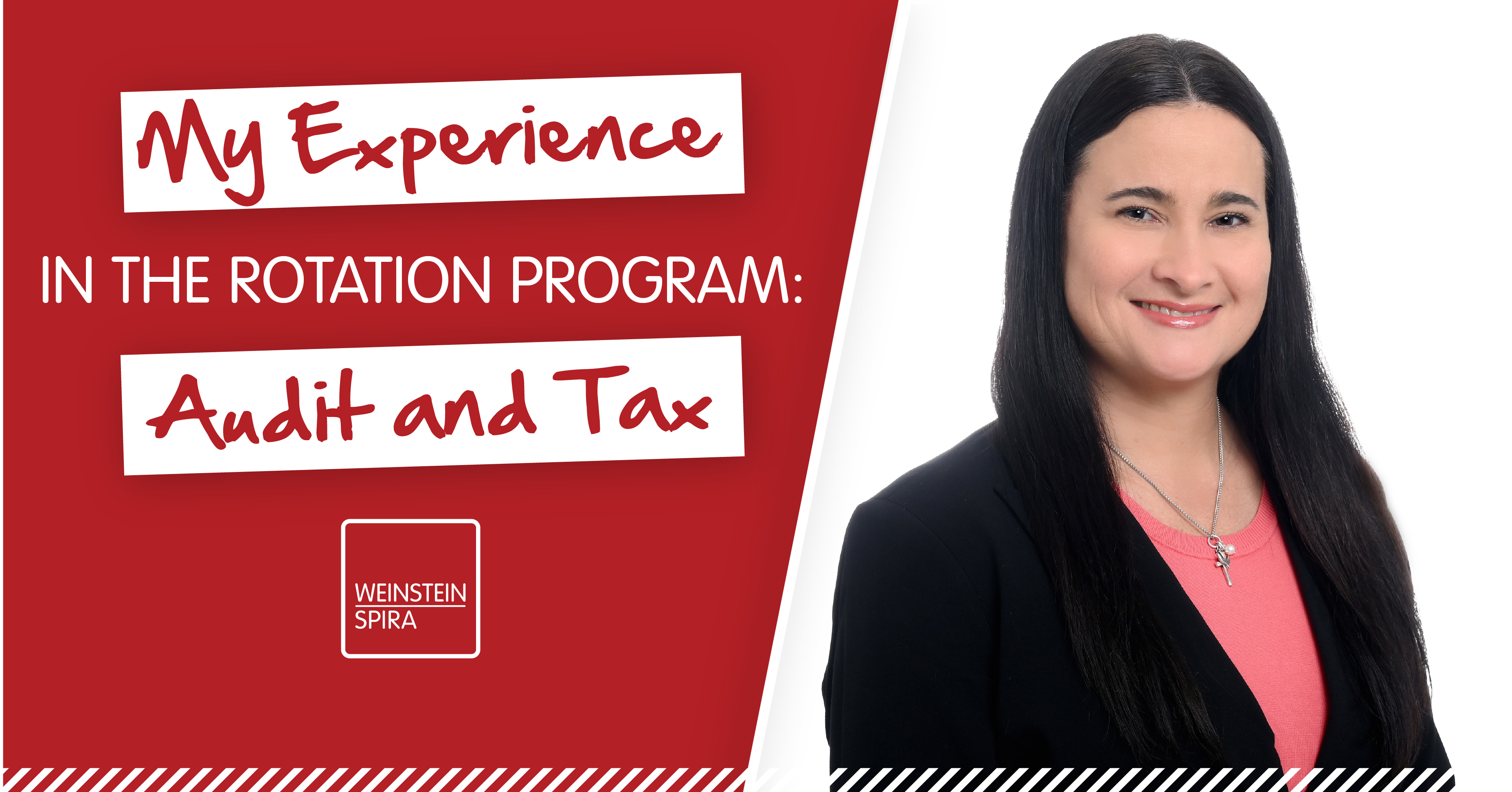Since I joined Weinstein Spira in November 2020, I have had several colleagues ask how my work at our firm compares to my experience at a Big 4 public accounting firm. In this blog, I will share what I believe are the seven primary differences between working in audit at a mid-tier and a Big 4 accounting firm.
- Firm Culture – For many professionals, the culture of a firm is their top priority. I believe the difference in culture is akin to living in a small rural town versus living in a big urban city. At Weinstein Spira, everyone knows your name and, in many cases, where you live! At a Big 4 firm, you typically only know the professionals on your engagements or in your start class. This difference has been positive for me, as it has given me the opportunity to work with every professional in the audit department since joining Weinstein Spira. As a manager, working with different people who have a variety of different experiences and perspectives has helped my professional growth.
- Client Workload – My biggest challenge in the transition was adjusting to the differences in client workload. At a Big 4 firm, I would spend an entire year on one client engagement because many of our clients were large public companies that required year-round audits, and being in Houston, many of my clients were in the oil and gas industry. At Weinstein Spira, a typical corporate audit will take about two-to-three months to complete, which includes a planning phase that typically is performed before year end. Because of this, my client workload as a manager went from four to twenty-four clients, which at first was a bit daunting. However, as I adjusted to the change, I realized the benefits were infinite. I have been able to work with a variety of different industries that expanded my accounting knowledge, ranging from inventory-intensive steel manufacturers and distributors, wireless communications providers, contractors, software developers, restaurants, and oil field staffing agencies. I have also developed long-lasting professional relationships with a variety of business owners and investors in the Houston market.
- The Many Hats – At a Big 4 firm, most of my responsibilities revolved around client service. At Weinstein Spira, while client service is always my priority, my day-to-day work often involves wearing many different hats. I am a resource manager, regularly maintaining and updating the audit schedule. I participate in firm leadership meetings to discuss major firmwide decisions and plans and business development efforts. I prepare proposals and am the face of the firm when meeting with potential clients. I am a leader of the Culture of Ownership committee and prepare the materials for and instruct in-house CPE trainings. I participate in recruiting, interviewing and decision making when hiring new professionals. At Weinstein Spira, I am not just an employee; I am helping run the business.
- The Hours – Of all the questions I have been asked when comparing my experiences, this is the most popular one. At Big 4, my standard busy season would run from January to April, auditing public engagements through the end of February and then private engagements through the end of April. The typical hours during this period ranged from 55 to 80. In April, July and October, there were also quarterly reporting requirements for public engagements, and the time in between is spent on planning procedures, internal control requirements and interim testing. Typical hours during quarterly reporting were 55 to 60. At Weinstein Spira, calendar year-end corporate audit deadlines mostly range from March to June, which involves planning procedures in the fall and fieldwork in the spring. Typical hours during the spring range from 45 to 60 hours but tend to vary from week to week, or person to person. During June, benefit plan season kicks off and runs through October. The hours during this time usually include vacation time and your more normal 40-hour weeks, until the weeks leading up to the October 15th employee benefit plan audit deadline, where hours can range from 50-60. There are also some off-calendar year end engagements completed during the July to October period which are more relaxed on the hours given the lower volume of work at that time.
- Work-Life Balance – At Big 4, my personal life revolved around my professional life, or rather my busy seasons. Living in the suburbs, I had a long commute into work each day which meant I left the house at seven and usually did not get home until after six, or sometimes even after midnight during busy season. At Weinstein Spira, my professional life revolves around my personal life. Because I am regularly involved in scheduling, I can plan when my audits are completed to ensure my workload is never too much at any given point in time. Because I am involved in business development, I am part of the decision-making process of adding new clients to our portfolio and agreeing on the timing of those engagements. Because our firm has flexible hours and remote working, I can work when its convenient for me, so I never miss the important moments in my loved-one’s lives.
- Firm Networks – At Big 4, the firm is part of a network of other offices and international firms, which means you have an abundance of resources available to you directly within your firm. This also means that there is a formal process when making major accounting decisions for your clients that require you to consult with the national office and in some cases, international professionals. At Weinstein Spira, although there is only one office, the firm is part of an international network of smaller firms that act very similarly to the network of the Big 4. However, the consultations are more casual, and the ultimate decisions are kept at the firm level which allows for more agile decision making.
- Mentoring – At Big 4, I had a performance management leader and a professional development mentor, both of which were assigned to me by the firm and were generally formal in nature. At Weinstein Spira, I have a coach that works with me on my professional development, but I also have an informal mentoring relationship with each of the shareholders of the firm. Many of them are only a phone call away and are always willing to help other professionals at the firm in their development. The relationships I have with them provide an invaluable resource to my career in public accounting as I can trust that they will help prepare me for the next phase of my career.
Want to learn more about life at Weinstein Spira? Learn More!
Each person in public accounting has their own unique experiences and that, I believe, is what makes our profession so exciting. I am proud of my decision to make this transition in my career and believe I have only scratched the surface of the benefits that come with working for a mid-tier accounting firm.



